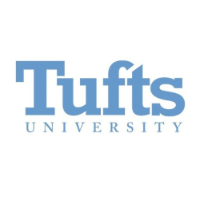What do they do?
Analyze chromosomes or chromosome segments found in biological specimens, such as amniotic fluids, bone marrow, solid tumors, and blood to aid in the study, diagnosis, classification, or treatment of inherited or acquired genetic diseases. Conduct analyses through classical cytogenetic, fluorescent in situ hybridization (FISH) or array comparative genome hybridization (aCGH) techniques.
Also known as:
Certified Cytogenetic Technologist, Clinical Cytogeneticist Scientist (CCS), Cytogenetic Technologist, Cytogenetics Clinical Laboratory Specialist (CG CLSp), Cytogenetics Technical Specialist, Cytogenetics Technologist, Molecular Genetics Technologist
-
0.7%
Change
Ranks #63 in job growth rate870Job Openings
Ranks #11 in net job growth
Looking for colleges that offer a specific major? Use the College Match Tool to find your best-matched schools and discover your estimated Net Price!
Most Popular Majors that prepare Cytogenetic Technologists
-
#1
-
Degrees Granted
99
-
Female Students
61
-
Male Students
38
-
Median Starting Salary
$42,090
-
-
#2
-
Degrees Granted
9
-
Female Students
6
-
Male Students
3
-
Median Starting Salary
$48,800
-
-
#3
-
Degrees Granted
4
-
Female Students
3
-
Male Students
1
-
Median Starting Salary
$48,800
-
People in this career often have these skills:
- Reading Comprehension - Understanding written sentences and paragraphs in work-related documents.
- Critical Thinking - Using logic and reasoning to identify the strengths and weaknesses of alternative solutions, conclusions, or approaches to problems.
- Writing - Communicating effectively in writing as appropriate for the needs of the audience.
- Active Listening - Giving full attention to what other people are saying, taking time to understand the points being made, asking questions as appropriate, and not interrupting at inappropriate times.
- Speaking - Talking to others to convey information effectively.
- Judgment and Decision Making - Considering the relative costs and benefits of potential actions to choose the most appropriate one.
- Complex Problem Solving - Identifying complex problems and reviewing related information to develop and evaluate options and implement solutions.
People in this career often know a lot about:
- Biology - Knowledge of plant and animal organisms, their tissues, cells, functions, interdependencies, and interactions with each other and the environment.
- Chemistry - Knowledge of the chemical composition, structure, and properties of substances and of the chemical processes and transformations that they undergo. This includes uses of chemicals and their interactions, danger signs, production techniques, and disposal methods.
People in this career often have talent in:
- Oral Comprehension - The ability to listen to and understand information and ideas presented through spoken words and sentences.
- Written Comprehension - The ability to read and understand information and ideas presented in writing.
- Information Ordering - The ability to arrange things or actions in a certain order or pattern according to a specific rule or set of rules (e.g., patterns of numbers, letters, words, pictures, mathematical operations).
- Near Vision - The ability to see details at close range (within a few feet of the observer).
- Oral Expression - The ability to communicate information and ideas in speaking so others will understand.
- Deductive Reasoning - The ability to apply general rules to specific problems to produce answers that make sense.
- Inductive Reasoning - The ability to combine pieces of information to form general rules or conclusions (includes finding a relationship among seemingly unrelated events).
- Written Expression - The ability to communicate information and ideas in writing so others will understand.
- Problem Sensitivity - The ability to tell when something is wrong or is likely to go wrong. It does not involve solving the problem, only recognizing that there is a problem.
- Category Flexibility - The ability to generate or use different sets of rules for combining or grouping things in different ways.
- Flexibility of Closure - The ability to identify or detect a known pattern (a figure, object, word, or sound) that is hidden in other distracting material.
People in this career often do these activities:
- Prepare biological specimens for laboratory analysis.
- Analyze laboratory specimens to detect abnormalities or other problems.
- Operate laboratory equipment to analyze medical samples.
- Determine protocols for medical procedures.
- Collect biological specimens from patients.
- Prepare official health documents or records.
- Prepare reports summarizing patient diagnostic or care activities.
- Communicate detailed medical information to patients or family members.
- Communicate test or assessment results to medical professionals.
- Enter patient or treatment data into computers.
- Monitor medical facility activities to ensure adherence to standards or regulations.
- Develop healthcare quality and safety procedures.
- Test biological specimens to gather information about patient conditions.
- Create advanced digital images of patients using computer imaging systems.
- Inform medical professionals regarding patient conditions and care.
- Maintain medical laboratory equipment.
- Maintain medical facility records.
- Supervise technical medical personnel.
- Prepare healthcare training materials.
- Train medical providers.
This page includes data from:

 Occupation statistics: USDOL U.S. Bureau of Labor Statistics Occupational Employment Statistics
Occupation statistics: USDOL U.S. Bureau of Labor Statistics Occupational Employment Statistics
 Videos: CareerOneStop, USDOL/ETA and the Minnesota Department of Employment & Economic Development
Videos: CareerOneStop, USDOL/ETA and the Minnesota Department of Employment & Economic Development








